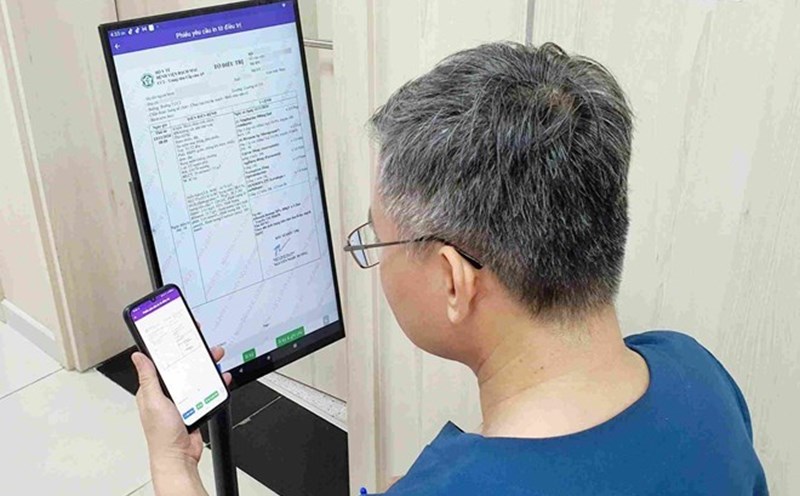Ms. N.T.L (61 years old, living in Binh Thanh District) said that she had high blood pressure, accompanied by spinal degeneration and osteoporosis. Every time she went for a check-up, she had difficulty moving. Hearing the news of being prescribed medicine for 3 months, she was very excited. However, in a recent examination, the doctor still only prescribed the drug for 28 days without giving a specific explanation. When I asked, the doctor just said it was not possible, so I was not sure why, Ms. L. shared.
Recorded at some medical facilities such as Go Vap Hospital, Gia Dinh People's Hospital or Thong Nhat Hospital, the reporter found that long-term prescriptions for patients have not been implemented simultaneously. Many doctors said they are still considering applying it for many reasons, from expertise to prescription conditions according to the regulations of the Ministry of Health.
Associate Professor, Dr. Le Dinh Thanh - Director of Thong Nhat Hospital - affirmed that the hospital has fully implemented new documents of the Ministry of Health, including Circular 26. However, the duration of the prescription depends on the specific condition of each patient, especially the elderly. "Just changing your lifestyle can affect the effectiveness of treatment. Therefore, not everyone is suitable for a 3-month prescription," he emphasized.
According to Mr. Thanh, in terms of management, extending the prescription is necessary to reduce the number of check-ups and costs for patients. However, to effectively implement it, there needs to be coordination between doctors and patients. "If the patient is stable, it is completely possible to have a long-term statement," he said.
Dr. Bui Duc Vuong - Head of General Planning Department, Le Van Viet Hospital - noted that not all diseases are allowed to prescribe drugs for 90 days. "Referral 26 only applies to 252 chronic diseases listed by the Ministry of Health. Some people misunderstand that any disease is entitled to this policy, causing great pressure on doctors in explaining and implementing it properly," said Dr. Vuong.
Sharing the same view, Dr. Tran Van Khanh - Director of Le Van Thinh Hospital said that the assessment of conditions for long-term prescriptions must be based on many factors: the stability of the disease, the ability to comply with treatment and the risk of complications. At the same time, the pharmaceutical warehouse system and drug management software also need time to be synchronized if they want to distribute drugs according to the 3-month cycle.
To gradually implement effectively, some hospitals have proactively screened eligible patients, coordinated with grassroots health care and promoted communication so that people can understand the policy correctly, avoid misunderstandings and distorted expectations.
Mr. Tang Chi Thuong - Director of the Ho Chi Minh City Department of Health said that to effectively implement, medical examination and treatment facilities need to organize internal professional training and unify the prescription process for drugs for follow-up examination. At the same time, it will strengthen communication to patients, help people understand correctly about being prescribed 2-3 months of health insurance drugs for chronic diseases, not "disbursed at will". Understand the health insurance benefits and the right time for re-examination according to the doctor's appointment, limit the situation of patients having to go for multiple re-examinations unnecessarily, contribute to reducing hospital burden and saving treatment costs.











